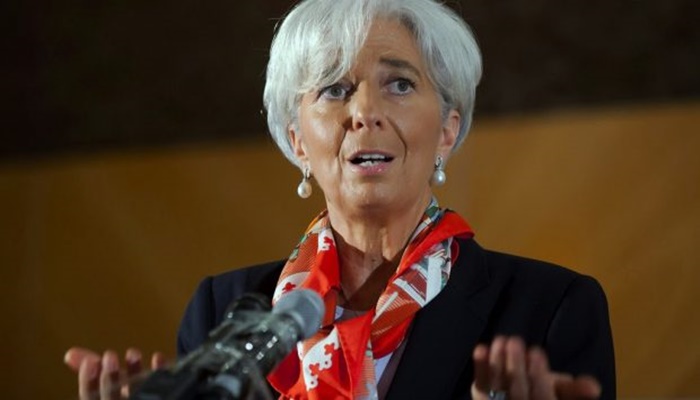
The UK and US economies will expand more slowly in 2017 than previously predicted, according to the International Monetary Fund (IMF).
It said “weaker-than-expected activity” in the first three months of the year meant the UK would grow by 1.7 per cent, compared with an earlier 2 per cent forecast, BBC reports.
And the IMF revised down its US outlook from 2.3 per cent to 2.1 per cent.
However, its overall global economic predictions – of 3.5 per cent growth in 2017 and 3.6 per cent in 2018 – remain unchanged.
Meanwhile the outlook for several eurozone economies is brighter than initially thought, with countries including France, Germany, Italy and Spain seeing growth forecasts revised up.
In its latest World Economic Outlook, the IMF said the “pick-up in global growth” that it had anticipated in its previous survey in April remained “on track”.
But it added that while the global growth projection was unchanged that masked “somewhat different contributions at the country level”.
‘Fundamentals strong’
The UK growth forecast for 2018 remains unchanged at 1.5 per cent, but US growth for next year is now predicted to come in at 2.1 per cent, instead of the 2.5 per cent previously forecast.
“While the markdown in the [US] 2017 forecast reflects in part the weak growth outturn in the first quarter of the year, the major factor behind the growth revision, especially for 2018, is the assumption that fiscal policy will be less expansionary than previously assumed, given the uncertainty about the timing and nature of US fiscal policy changes,” the IMF said.
“Market expectations of fiscal stimulus have also receded.”
A UK Treasury spokesperson said the IMF forecast underlined why the government’s plans to increase productivity and get “the very best deal with the EU” after Brexit were “vitally important”.
“Employment is at a record high and the deficit is down by three quarters, showing that the fundamentals of our economy are strong,” they added.
President Donald Trump’s administration had been widely expected to pursue policies including tax cuts and infrastructure investment, which would have given a boost to the US economy.
However, that outcome now appears less likely.
The biggest eurozone revisions were for the Spanish and Italian economies. Spain is now forecast to grow 3.1 per cent this year, up from the previous prediction of 2.6 per cent. Italy’s 2017 growth forecast has risen from 0.8 per cent to 1.3 per cent.
The euro area as a whole is expected to grow by 1.9 per cent this year, up from 1.7 per cent.
The IMF said first-quarter growth in many of those countries better than expected, and that there was evidence of “stronger momentum in domestic demand than previously anticipated”.
China’s growth projections have also been revised up, reflecting, the Fund says, “a strong first quarter of 2017 and expectations of continued fiscal support”.
Its 2017 forecast has risen from 6.6% to 6.7 per cent, while growth in 2018 is now expected to be 6.4 per cent instead of 6.2 per cent.
The IMF hailed China’s “policy easing and supply-side reforms”, including efforts to reduce excess capacity in the industrial sector.
Credit: BBC






